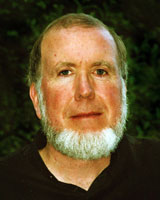Interesting write up on the Dunedin study.
Futurity.org
A long-term tracking study of more than 1,000 New Zealanders from birth to age 32 suggests that people vastly underreport the amount of mental illness they’ve suffered when asked to recall their history years after the fact.
The problem I see with this is not in the study or the data, I have heard an excellent presentation on this study.
There is a problem though. Who decides what is mental illness?
Social, political & cultural problems, such as poor education, poverty, ignorance about relationships & parenting, disenfranchisement, advertising and trashy media, disinformation, excessive power of pharmaceutical companies, racism, sexism and society’s sanction of violence do lead to personal deficits.
The problem with calling those deficits illness is two fold: one it personalises the social & political deficiencies. Secondly it undermines seeking personal help as it comes at the price of being seen as ill.
The solution is not to make it more socially acceptable to accept such labels as the Mental Health foundation is trying to do. That is well intentioned and would be ok if there was a better culture around assessing what mental illness really is.
At the heart of many of the conditions that are not illness is the belief that one is not OK. Counselling often involves re-learning that one is OK. It is not useful to learn “I am ill, but that is OK” when that leads to a passivity and acceptance of an ill and depressed lifestyle. A belief that somewhere in my chemicals I can’t help it, when really no such chemical situation exists, at least not one that can be shown to be more at the root of the problem than the mental illness diagnosis itself.



